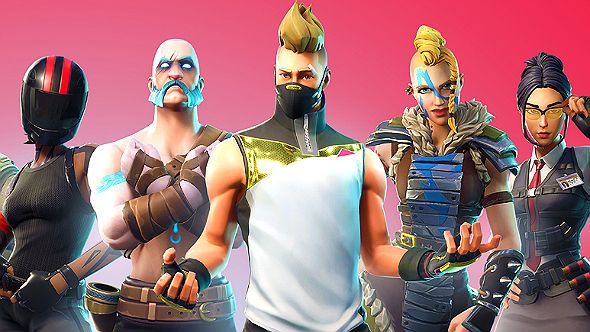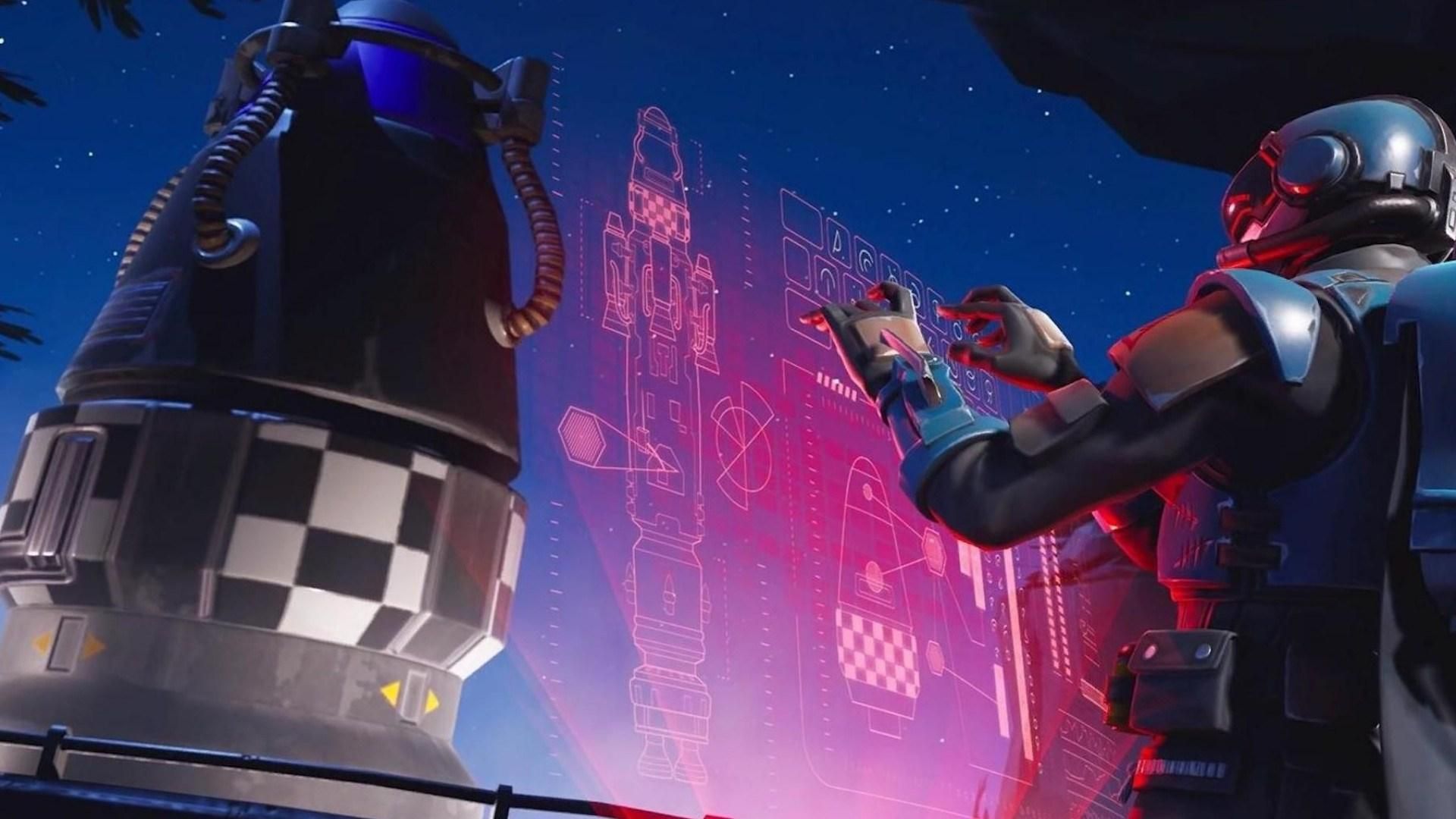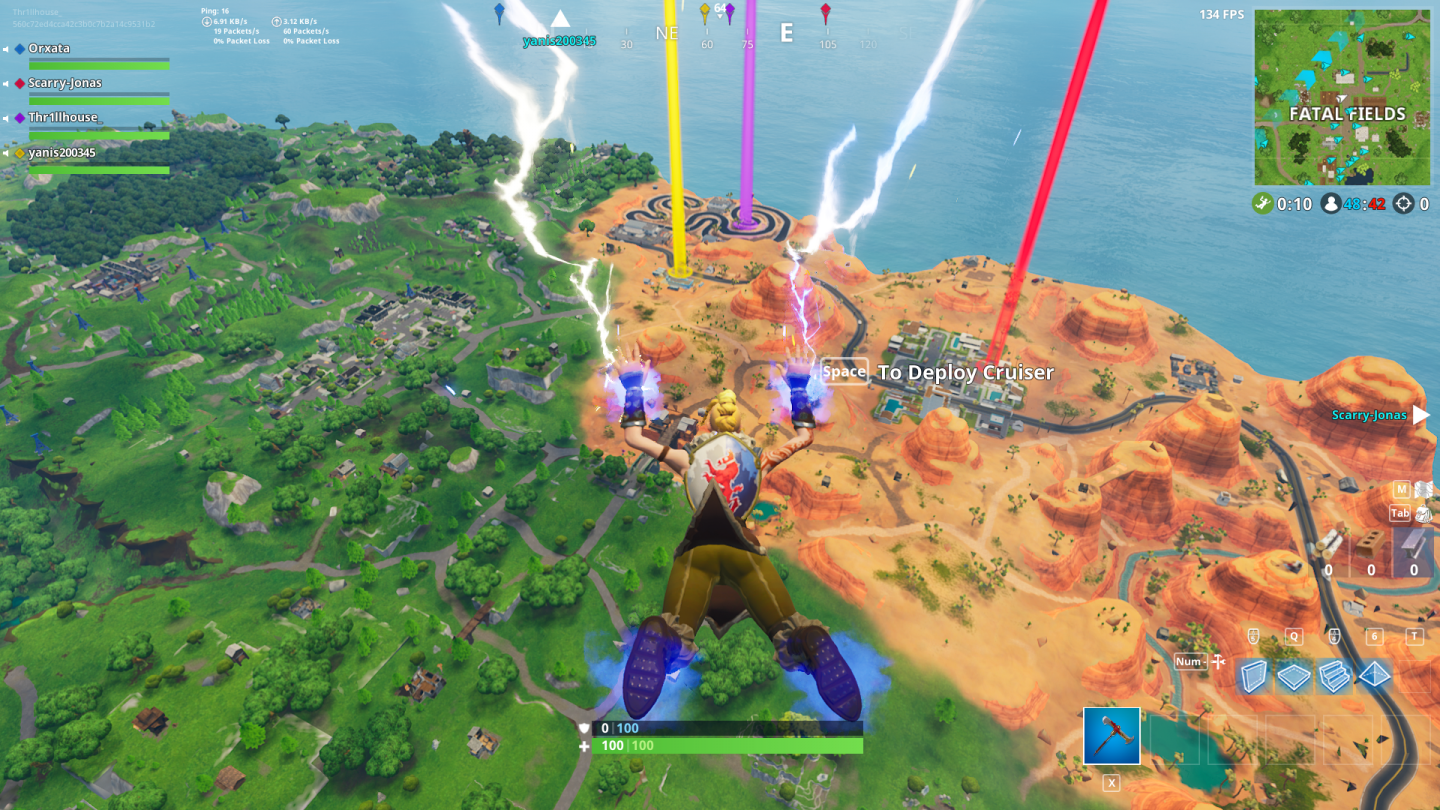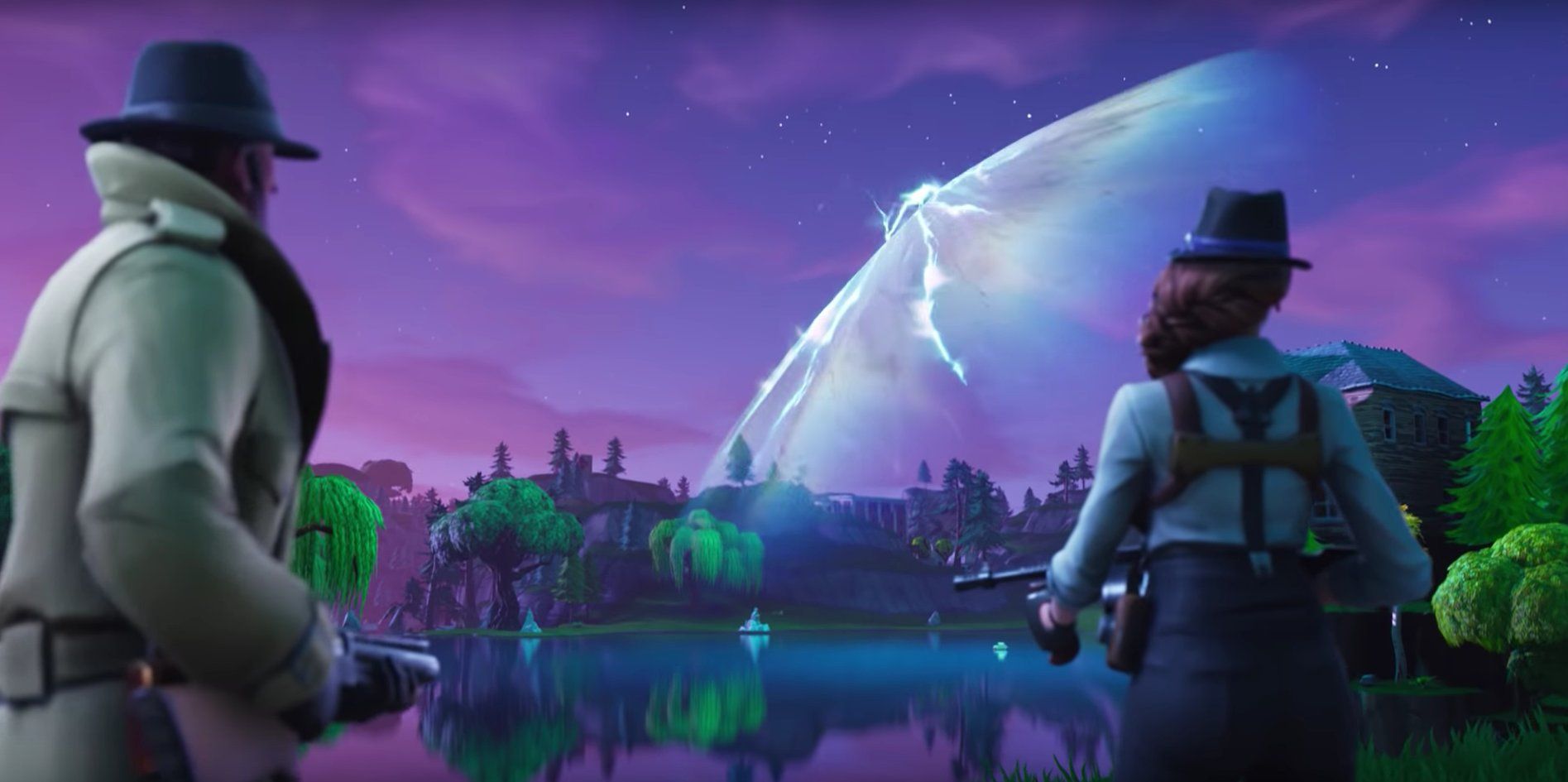It all started with a rocket. Just a few weeks ago in the world of Fortnite, a rocket launch within the game gathered together thousands (if not millions) of players to witness a mysterious rocket launch that caused the beginning of some strange occurrences in-game. Soon after that, more strange twists and turns were making their way into the world of Fortnite -- random items from different time periods like a Western horse carriage and a very pirate-y anchor began popping up on the map in random places through bizarre portals.
The week after that, Fortnite began trickling into the real world, as the game's Durr Burger mascot landed in real life in the deserts of California, and Loot Llamas began making trips to various locations around Europe, including Spain, London, Paris, and elsewhere.
[pullquote]"Fortnite began trickling into the real world, as the game's Durr Burger mascot landed in real life in the deserts of California."[/pullquote]
As Fortnite players quickly figured out, this of course was all part of Epic Games' build-up to Season 5 of Fortnite: the teases and ARG-like elements that Epic Games were crafting were a brilliant way to build up anticipation for the next major in-game event for the massively-popular shooter. However, what's clearer with Season 5 of Fortnite is that its willingness to push the boundaries of in-game content and variety is proving, I think, to be one of the ways that battle royale games moving forward can push past just relying on battle royale gameplay being The Hot New Trend™ of the moment, and crafting a more involving experience in the process simply through storytelling.
Season 5 for Fortnite started this week, and alongside the usual batch of new cosmetic items, skins, weapons, and more to unlock, Season 5 has also brought some of the most intriguing changes to the ever-popular shooter yet by way of a unique narrative spin. As its "Worlds Collide" subtitle implies, Season 5 incorporates not only new cosmetics and items to unlock, but also integrated all of that into a loose narrative leading up to the new season's debut under an encompassing time travel/alternate dimension theme.
[pullquote]"The teases and ARG-like elements that Epic Games were crafting were a brilliant way to build up anticipation for the next major in-game event for [Fortnite]."[/pullquote]
While I only just started playing Fortnite within the past month or so after the game released on Nintendo Switch during E3, the limited time that I have spent with the game has already shown me a lot as to why the game has gotten as big as it has: its gameplay is fun and addicting, its visuals are colorful and vibrant, and its emphasis on player creativity has added a novel spin to the now-familiar battle royale gameplay loop. But perhaps most of all, what I have been seeing from my time with Fortnite is that Epic has (smartly) been developing a unique relationship between players and its game world that we haven't quite seen other battle royale games deliver on just yet, and Season 5 perhaps is the best example that we've seen of this important variable for the game.
Fortnite, at this point, still relies on just one map to keep players invested, and yet the game map has been constantly shifting and evolving to keep players intrigued and surprised. While some players may yearn for new maps and environments to keep things interesting (as we've seen from its main competitor, PlayerUnknown's Battlegrounds, in the past few months), personally I love the fact that there's a sense of discovery and change that occurs within an environment that players have been seeing countless times and that the world of Fortnite always has something new to enjoy.
[pullquote]"Epic has been developing a unique relationship between players and [Fortnite's] world that we haven't quite seen other battle royale games deliver on just yet."[/pullquote]
Season 5 of course is far from the first time that we've seen Fortnite pull off a major in-game event for players, as the game experimented early on with numerous limited game modes and variants, such as its ever-popular 50v50 mode. Likewise, this past May also saw the game incorporate the limited time Thanos event to coincide with Avengers: Infinity War releasing in theaters. This Avengers-themed event brought a perfect storm of a wildly-different new game type, a cross-promotional opportunity with one of the biggest movies of the year, and a ridiculous new way to keep Fortnite players invested in the game. Oh, and seeing Thanos dance: don't forget that.
But even past those examples, Season 5 of Fortnite is intriguing in so many ways in that it blends a pseudo-narrative experience into its battle royale style of gameplay, a move that I think is smart on Epic's part to keep players invested in the game's world and "story," despite there being a relative lack of any semblance of storytelling in most other battle royale games. For all intents and purposes, Fortnite is becoming closer to an MMO-like experience, and the way it is blending its battle royale gameplay with breadcrumbs of a story to keep players exploring every nook and cranny of its world is exciting.
The importance of that sense of involvement and engagement within the world of Fortnite, I think, is going to be important for the genre moving forward, largely because it's getting bigger and bigger by day. After E3 2018 alone, we've seen that the battle royale genre is only going to grow more competitive, with the likes of major AAA titles like Battlefield V and Call of Duty: Black Ops 4 set to join the fray later this year, let alone the dozens of smaller independent titles seeking to claim their stake in the genre each week. The battle royale craze is certainly going to bubble over at some point, and perhaps no better example of that was the recent release of The Culling 2, which found itself pretty much dead-on-arrival in a crazily competitive market.
[pullquote]"With the progressive new seasons of Fortnite, I expect to keep playing to see more of what Epic's constantly shifting and evolving world has in store."[/pullquote]
Given that Fortnite's player count is now in the hundreds of millions (and growing), there's clearly little sign of the game's growth slowing down any time soon, especially against the more substantial drops that its main competitor, PlayerUnknown's Battlegrounds, has been experiencing through a good majority of 2018 (compared to its meteoric rise last year). While that's not to say that Fortnite may not lose players in the future when The Next Big Thing arrives in multiplayer games, what I've found most striking with Fortnite's approach to player retention is the fact that it has been willing to let things get a little crazy, in the name of keeping things fresh and interesting for players to keep coming back to.
As one of the top titles leading the charge in the current trend of battle royale titles, I never would have expected a game like Fortnite to deliver a sense of capable storytelling in such an engaging way. And yet with the progressive new seasons of Fortnite, from Season 4's superheroes to Season 5's time travel endeavors, I expect to keep playing to see more of what Epic's constantly shifting and evolving world has in store, and I can't wait to share in the experiences with other players.
Fortnite is available now on PS4, Xbox One, Nintendo Switch, PC, Mac, and iOS, and will be coming to Android sometime this summer.





